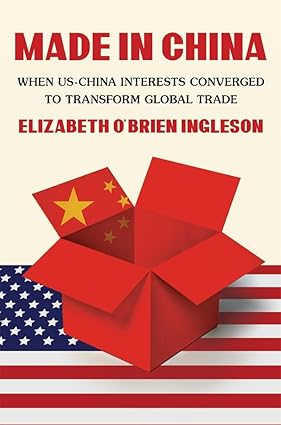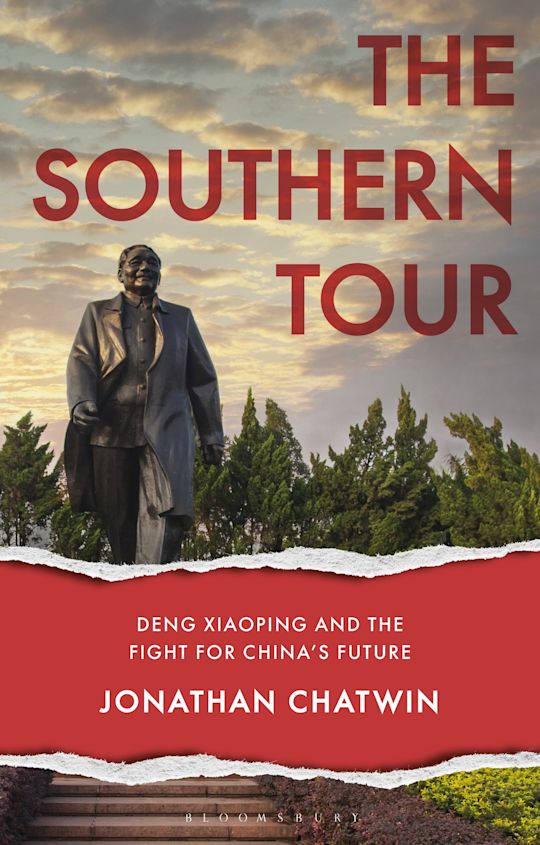Two books from this spring, Made in China: When US-China Interests Converged to Transform Global Trade by Elizabeth O’Brien Ingleson and The Southern Tour: Deng Xiaoping and the Fight for China’s Future by Jonathan Chatwin, excavate these late 20th-century origins of China’s economic transformation. Taken together, the two works reveal that the stereotype of China as a producer of low-quality products made by poorly compensated workers laboring under a regime that has chosen prosperity over human rights is a historical artifact, though they employ notably different topics, research methodologies, and narrative styles to do so.
An academic historian, Ingleson teaches at the London School of Economics. In Made in China, her first monograph, she builds deep, original case studies from archival research that draws on materials from the Nixon and Ford presidential libraries as well as corporate papers from American businesses that operated in China, like JCPenney. Ingleson’s sharp and illuminating study introduces key moments and figures in the 1970s transformation of Sino-US trade to explore how changes in US capitalism created the conditions for China’s economic rise. By taking us back to the early, uncertain moments of renewed Sino-US relations, Ingleson’s study provides that shocking jolt that the best histories do, reminding us of things forgotten beneath decades of layered teleological explanations for how we got from there to here.
Chatwin’s The Southern Tour is also concerned with the interweaving of past and present in modern China but reflects his expertise as a travel writer and journalist interested in the urban landscape. Chatwin utilizes a range of scholarly, media, and published sources to explicate the central role of premier leader Deng Xiaoping in China’s 1980s economic liberalization, a time “when the question of what China would become was far from fixed.” The narrative is structured around retracing the course of the titular 1992 tour when Deng consolidated the legacy of his economic policies. In exploring how past and present coexist in China’s urbanized landscape, Chatwin reinforces how past contingency—and contemporary memories of that “far from fixed” late 20th-century moment—continue to plague the present.
Each of the books, in its own way, sheds light on how a joke about Chinese fast fashion can be so densely layered in subtext, calling up immediate references for casual, Saturday night viewers to the collapse of American manufacturing, the ubiquity of transnational trade, the threat of Chinese authoritarianism, and their own culpability in a complex consumerist web. Ingleson’s and Chatwin’s research underscores that Chinese labor and the process of economic liberalization were not always connected to economic exploitation and political suppression, but their research also shows how the system in which we all now live and consume was finished like piecework, patched together to sustain systems of power and control in both the United States and China.

